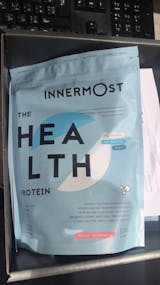If you’re looking to start exercising with the goal of losing weight, running is one of the most accessible ways possible to work out. It’s free (assuming you have some decent running shoes), you can make a stab at it no matter your fitness level, and it can slot easily into your life, no matter if you’re an early riser or a night owl.
As well as being accessible, running is a genuinely great way to start shedding the pounds - if you go about it in the right way. While you might think that it’s the running itself which is the most important thing about running for weight loss, this isn’t always true.
Often, what you do before and after your run, and how you nourish yourself at those times, can have more of an effect than the run itself. The Energy Booster is a great example of a pre-workout that is the perfect way to boost your energy levels for a run.
With this article, you’ll be able to plan the best way to start running to lose weight, no matter the length or speed of your runs.
Does running help you lose weight?
Ah, the eternal question.
The answer is yes, if by running you’re boosting your activity level to above what it was before. If you’re new to exercise and you start running, even just for short periods of time, the fact that you’re burning additional calories and exercising is probably going to mean that you drop a few kilos if you do it regularly enough.
However, it’s likely that you will hit a running and weight loss plateau. Think about it - if you’re running for 30 minutes a day three times a week for weeks and months on end, the progress you’re making both in terms of your running ability and your weight loss will stall, because nothing is progressing or changing. You’re still burning calories by running, but the amount of calories you’re burning is not increasing.
To change this once you’ve been in the same routine for a while, and to continue running to lose weight, you need to alter your pattern. This could include going for longer runs, trying to increase your running speed, or running up hills rather than on a flat surface. The goal is to do more than you did before - this is how you’ll see tangible bodily results.
Cardio for weight loss
While it’s the physical act of running that will burn off those calories, considering your diet is a huge part of running for weight loss. The last thing you want to do is overcompensate with calories after your runs, thinking that you’ve earned it. You have earned it - but you want to be aiming for a protein shake and a banana as post-run fuel, not a stack of pancakes with syrup.
A study in the American Journal of Clinical Nutrition found that people who started exercising recently have a tendency to overcompensate with calories after a workout, meaning that they lose less weight than they expected. Don’t fall into that trap.
It’s a better tactic to think in terms of how many miles you ran, as opposed to how many minutes you ran for. Your body burns around 100 calories a mile, so if you’ve run three miles fast or you’ve run three miles slowly, that’s still only 300 calories burned.
What to eat before and after a run
For a short run, you don’t need to eat anything as a pre-workout snack. Save your calories for something to eat post-workout. If you’re running for hours at a time, however, or training for a marathon or other kind of long run, it’s essential to get some fuel in your tank before you leave the house.
After your run, drink a large glass of water before consuming anything else, which has the dual benefits of ensuring that you’re properly hydrated and filling your stomach so you don’t feel as immediately starving hungry as you might otherwise.
Next, it's time for a protein shake
Then, we recommend knocking up an Innermost protein shake. Targeted to your nutrition and exercise goals, they’re formulated to help you get where you want to go. Try The Strong Protein to enable you to push yourself harder, reduce inflammation and speed up recovery to help you get stronger, quicker. Or if you’re looking to work yourself as hard as you can in your workout regime, give The Fit Protein a go. It’s formulated to rehydrate and restore energy, and support muscle growth and repair.
It’s very much worth considering your diet as a whole as well, rather than just what you’re consuming before and after runs. Eating healthily should be holistic and should extend to every area of your life - you’re not going to lose weight by running if you’re eating an ice cream sundae for dessert every single night.
Summary
So, can you lose weight by running? Absolutely. Get those running shoes on!
The Insight section of our website has tons of great food ideas for staying nutritionally optimised, as well as recipes for things such as protein bars and smoothies for when you really want to treat your body well. By eating in the way that’s best for you and your body, you’ll keep food cravings at bay and continue fruitfully on your running and weight loss journey.
























